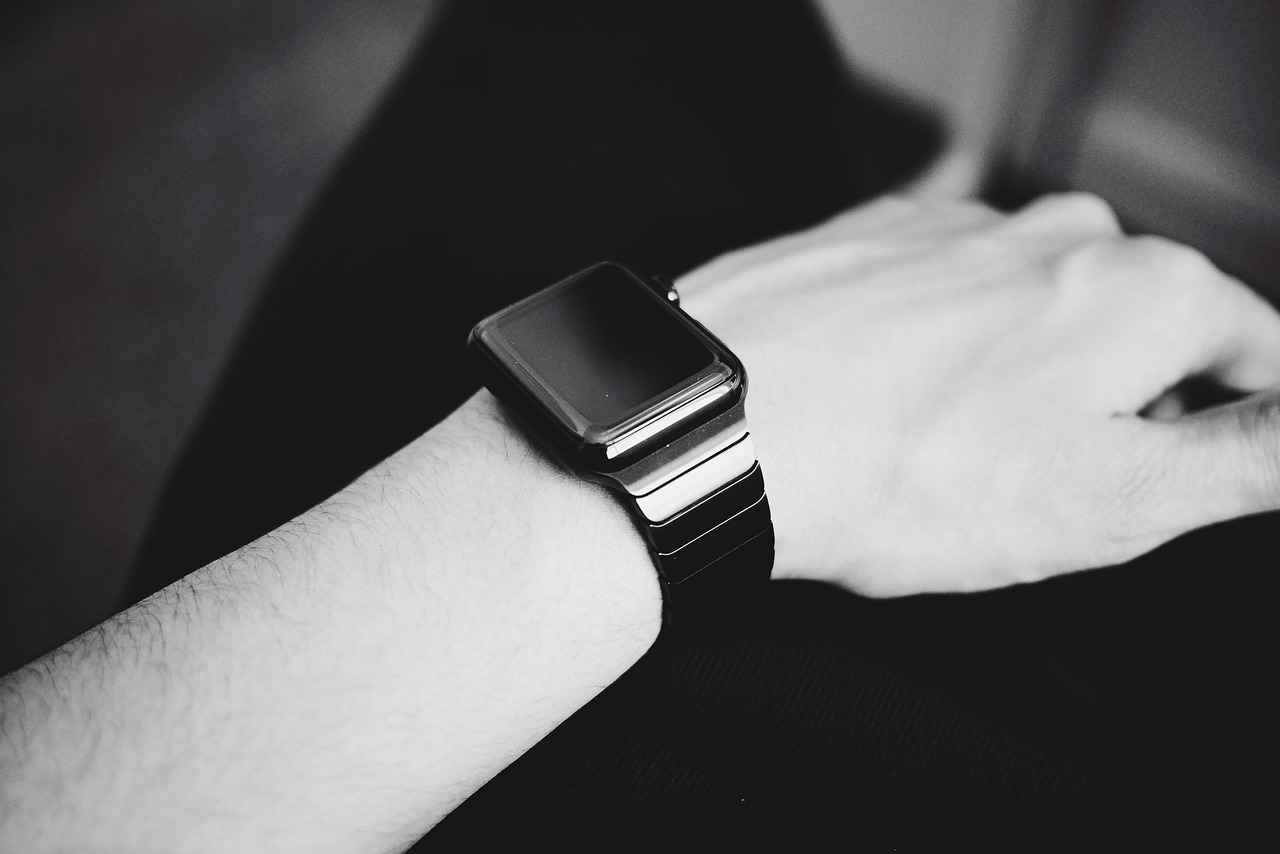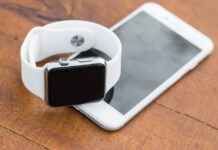This article delves into the most advanced smartwatches that feature ECG and heart rate monitoring capabilities. These devices not only serve as timekeepers but also play a pivotal role in personal health management. By integrating cutting-edge technology, these smartwatches provide users with essential insights into their cardiovascular health, enabling proactive lifestyle changes.
What is ECG Monitoring in Smartwatches?
Electrocardiogram (ECG) monitoring in smartwatches allows users to track their heart’s electrical activity. This feature is crucial as it provides insights into heart health and can identify potential arrhythmias, which can be life-saving. With just a few taps, users can initiate an ECG reading, making heart health monitoring accessible and convenient.
Benefits of Heart Rate Monitoring
Heart rate monitoring is an essential feature for fitness enthusiasts and health-conscious individuals alike. It helps users maintain optimal fitness levels, track exercise intensity, and manage stress. Furthermore, continuous heart rate data contributes to a better understanding of overall well-being and health awareness.
Top Smartwatches with ECG Features
- Apple Watch Series 8: This model offers advanced ECG capabilities, allowing users to conduct an ECG test in just 30 seconds. It also includes comprehensive heart health tracking features.
- Samsung Galaxy Watch 5: Known for its user-friendly interface, this smartwatch provides ECG monitoring alongside heart rate tracking. Its integration with Samsung Health enhances fitness insights.
Comparing Smartwatch ECG Accuracy
The accuracy of ECG readings from various smartwatches is crucial for users relying on these devices for health monitoring. Understanding the reliability of these readings can empower users to make informed health decisions.
Clinical Studies on Smartwatch ECG Accuracy
Several clinical studies have been conducted to evaluate the accuracy of smartwatch ECG readings. These studies emphasize the reliability of this technology and its potential for early detection of heart conditions.
User Experiences and Testimonials
User reviews provide valuable insights into the practicality and effectiveness of ECG features. They help potential buyers understand real-world applications and benefits of the technology.
Heart Rate Monitoring Features Explained
Smartwatches utilize various heart rate monitoring technologies, including optical sensors and advanced algorithms, to enhance accuracy. Understanding these technologies can help users choose the right device for their needs.
Continuous vs. On-Demand Heart Rate Monitoring
It’s essential to understand the differences between continuous and on-demand heart rate monitoring. This knowledge can guide users in selecting a smartwatch that aligns with their lifestyle and fitness goals.
Heart Rate Variability: What to Know
Heart rate variability (HRV) is a critical metric for assessing overall health. Smartwatches capable of tracking HRV provide insights into stress levels and recovery, making them invaluable for health management.
Choosing the Right Smartwatch for Your Needs
When selecting a smartwatch with ECG and heart rate monitoring, consider factors such as compatibility, design, battery life, and additional health features. These elements are essential for ensuring a satisfactory user experience.
Budget vs. Premium Smartwatches
Comparing budget-friendly options with premium smartwatches reveals trade-offs between features, performance, and price. Understanding these differences can help users make informed purchasing decisions.
Future Trends in Smartwatch Health Monitoring
As technology evolves, emerging trends in smartwatch health monitoring will likely lead to advancements in ECG and heart rate tracking capabilities. Staying informed about these trends can help users choose devices that will meet their future health needs.
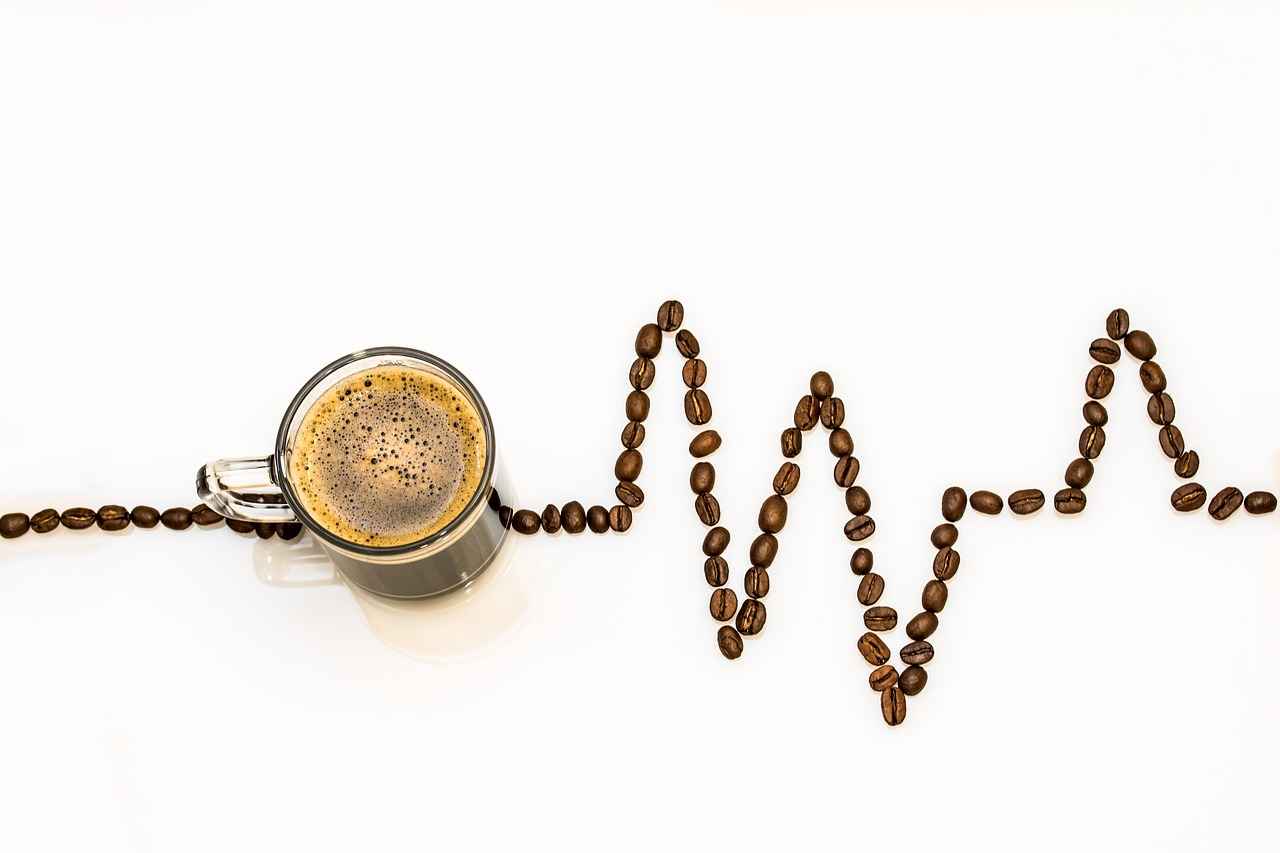
What is ECG Monitoring in Smartwatches?
Electrocardiogram (ECG) monitoring in smartwatches is a revolutionary feature that enables users to track their heart’s electrical activity conveniently from their wrists. This technology captures the heart’s rhythm and can help identify potential arrhythmias or irregular heartbeats, which are crucial indicators of heart health.
By simply placing a finger on the smartwatch’s sensor, users can initiate an ECG reading that typically lasts less than a minute. The data collected is then analyzed, providing users with immediate feedback regarding their heart’s condition. This feature is particularly beneficial for those with a family history of heart disease or individuals who want to proactively manage their cardiovascular health.
Moreover, the integration of ECG monitoring in smartwatches not only enhances personal health management but also promotes awareness of heart health. Users can easily track their readings over time, allowing for better-informed discussions with healthcare providers. This continuous monitoring can lead to early detection of potential issues, enabling timely interventions.
In addition to ECG functionality, many smartwatches also incorporate other heart monitoring features such as heart rate tracking, which provides a comprehensive view of cardiovascular fitness. This dual capability empowers users to maintain optimal fitness levels and manage stress more effectively.
Overall, the advent of ECG monitoring in smartwatches marks a significant advancement in wearable technology, offering users a practical tool for monitoring their heart health. As these devices continue to evolve, they promise to deliver even more sophisticated health insights, making them invaluable companions in the journey toward better health.
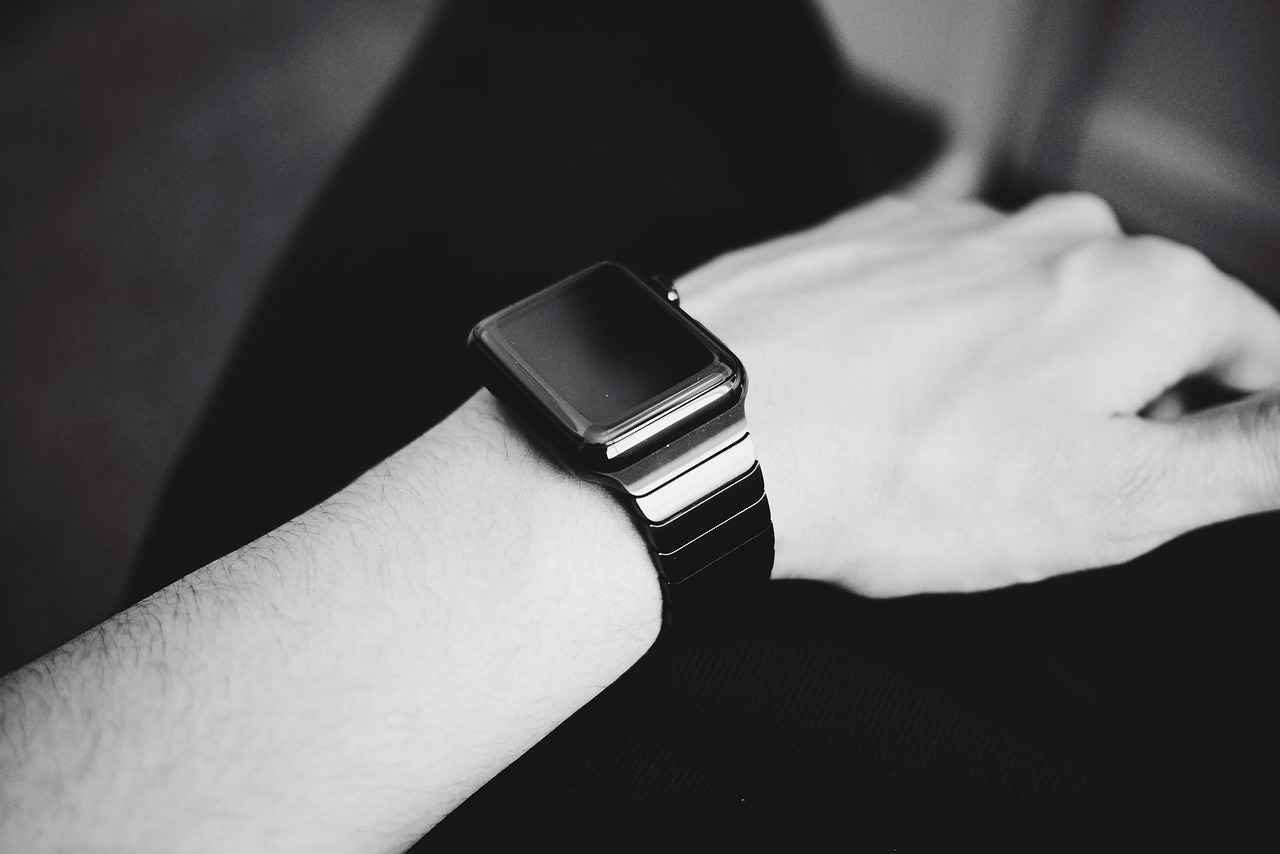
Benefits of Heart Rate Monitoring
Heart rate monitoring has become an essential feature in modern smartwatches, providing users with valuable insights into their cardiovascular health. This technology enables individuals to maintain optimal fitness levels by tracking their heart rate during various activities, ensuring they are exercising within their target heart rate zones. By understanding their heart rate, users can tailor their workouts to achieve specific fitness goals, whether it’s weight loss, endurance training, or muscle building.
Moreover, heart rate monitoring plays a crucial role in tracking exercise intensity. During workouts, it’s vital to know when to push harder and when to ease off. Smartwatches equipped with heart rate sensors give real-time feedback, allowing users to adjust their exercise intensity accordingly. This not only enhances workout effectiveness but also reduces the risk of overtraining and injury.
In addition to fitness, heart rate monitoring is instrumental in stress management. Elevated heart rates can indicate stress or anxiety, and many smartwatches now feature stress tracking capabilities. By monitoring heart rate variability (HRV), users can gain insights into their stress levels and implement relaxation techniques such as deep breathing or meditation when necessary. This proactive approach to managing stress contributes significantly to overall well-being.
The integration of heart rate monitoring into daily life fosters greater health awareness. Users can observe patterns in their heart rate throughout the day, identifying how different activities and emotional states affect their cardiovascular health. This awareness empowers individuals to make informed lifestyle choices, from adjusting their exercise routines to adopting healthier habits.
Ultimately, the benefits of heart rate monitoring extend beyond fitness and stress management. By providing a comprehensive view of heart health, smartwatches help users take charge of their well-being, making it easier to lead a healthier and more balanced life.
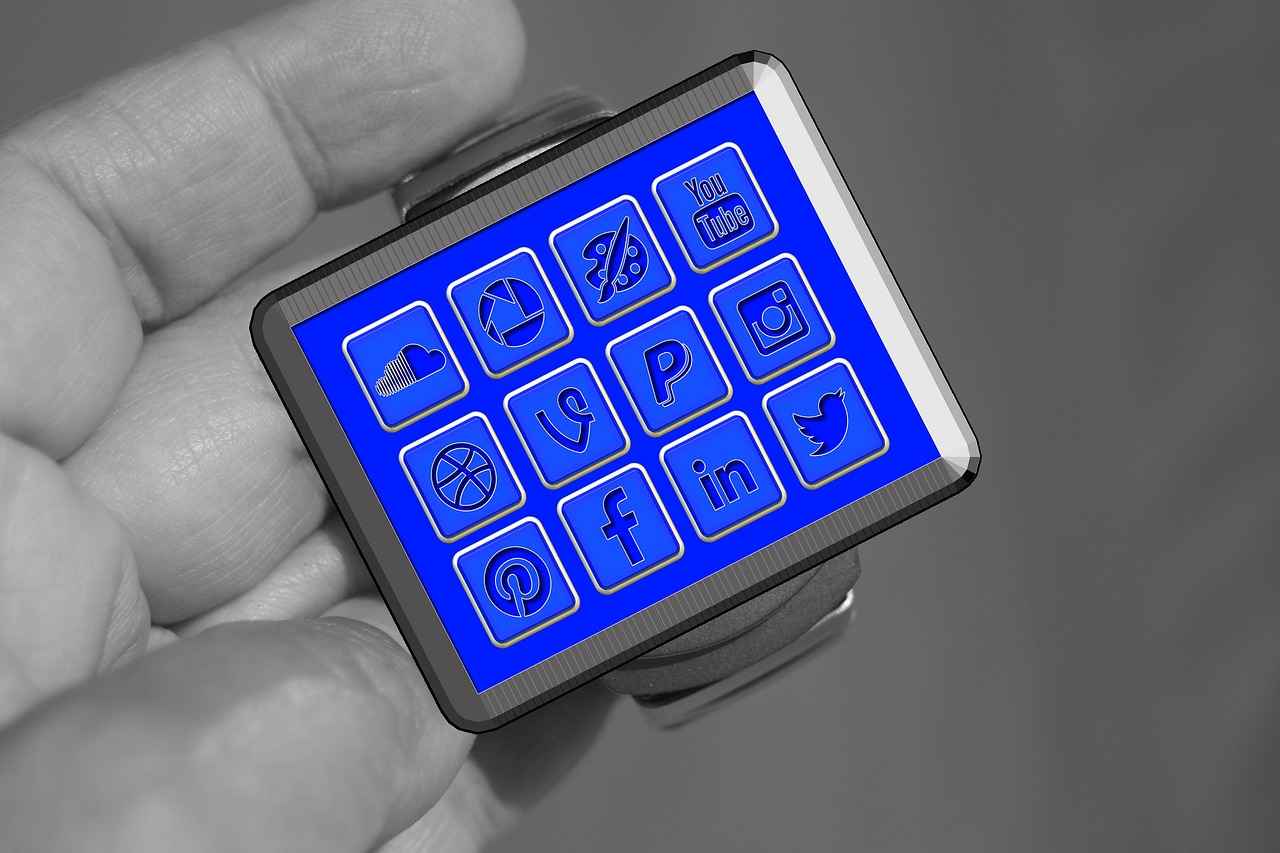
Top Smartwatches with ECG Features
In today’s fast-paced world, smartwatches have become essential tools for health monitoring, particularly for those interested in tracking their heart health. Among the most sought-after features is ECG functionality, which allows users to monitor their heart’s electrical activity. Below is a selection of top smartwatches that offer ECG capabilities, each with unique features and user experiences.
- Apple Watch Series 8
The Apple Watch Series 8 is renowned for its advanced ECG capabilities. Users can perform an ECG test in just 30 seconds, providing quick insights into their heart health. It also offers comprehensive heart health tracking, including notifications for irregular heart rhythms, making it a favorite among health-conscious individuals.
- Samsung Galaxy Watch 5
This smartwatch combines ECG monitoring with heart rate tracking, offering a user-friendly interface and seamless integration with Samsung Health. Users appreciate its fitness insights, which help them stay on top of their wellness goals while monitoring their heart health.
- Fitbit Sense
The Fitbit Sense not only provides ECG functionality but also includes stress management tools and skin temperature monitoring. Users find its holistic approach to health appealing, as it encourages a balanced lifestyle.
- Withings ScanWatch
With its hybrid design, the Withings ScanWatch offers a classic watch look while providing advanced ECG monitoring. Users have praised its long battery life and medical-grade sensors, making it a reliable choice for those seeking a blend of style and functionality.
When comparing these smartwatches, it’s essential to consider factors such as accuracy, user experience, and additional health features. Each device has its strengths, and user testimonials often highlight how these features contribute to better health management.
Ultimately, the choice of a smartwatch with ECG functionality will depend on individual preferences, lifestyle, and specific health needs. By understanding the unique offerings of each model, users can make informed decisions that align with their health goals.
Apple Watch Series 8
The represents a significant advancement in wearable technology, particularly in the realm of heart health monitoring. One of its standout features is the advanced ECG capability, which enables users to conduct an electrocardiogram test in a mere 30 seconds. This quick test provides valuable insights into the heart’s electrical activity, helping users to monitor their heart health effectively.
In addition to its ECG functionality, the Apple Watch Series 8 is equipped with a suite of comprehensive heart health tracking features. Users can benefit from continuous heart rate monitoring, which allows them to keep tabs on their heart rate throughout the day, whether they are exercising or resting. This feature is essential for those looking to optimize their fitness levels and manage their overall well-being.
The watch also offers notifications for irregular heart rhythms, alerting users to potential health issues before they escalate. This proactive approach to health monitoring can be crucial for early detection of conditions that may require medical attention. Furthermore, the Apple Watch Series 8 integrates seamlessly with the Health app, allowing users to view and analyze their heart health data over time.
Another remarkable aspect of the Apple Watch Series 8 is its user-friendly interface, which makes accessing heart health features intuitive and straightforward. Users can easily navigate through various health metrics, empowering them to take charge of their health management.
Overall, the Apple Watch Series 8 stands out not just for its ECG capabilities but also for its holistic approach to heart health tracking, making it an invaluable tool for anyone serious about monitoring their cardiovascular health.
Samsung Galaxy Watch 5
The stands out in the crowded smartwatch market, particularly for those seeking advanced health monitoring features. This device integrates ECG monitoring with traditional heart rate tracking, providing users with a comprehensive overview of their cardiovascular health. The watch’s design is sleek and modern, making it not only functional but also a stylish accessory for daily wear.
One of the key features of the Galaxy Watch 5 is its intuitive interface. Users can easily navigate through various health metrics, making it simple to access important data at a glance. The watch seamlessly integrates with Samsung Health, a robust platform that enhances fitness insights by compiling data from workouts, sleep patterns, and daily activities. This integration allows users to set personalized health goals and track their progress over time.
Moreover, the ECG feature on the Galaxy Watch 5 enables users to take an electrocardiogram directly from their wrist. This capability is especially beneficial for those who want to monitor their heart’s electrical activity and detect potential issues such as arrhythmias. The watch provides instant feedback, allowing users to share their ECG readings with healthcare professionals if needed.
In addition to ECG and heart rate tracking, the Galaxy Watch 5 offers a variety of other health metrics, including stress monitoring and blood oxygen levels. This holistic approach to health management is designed to empower users to make informed decisions about their well-being. With a long-lasting battery life and customizable watch faces, it caters to both fitness enthusiasts and casual users alike.
Overall, the Samsung Galaxy Watch 5 is a top contender for anyone looking for a smartwatch that not only tracks fitness metrics but also prioritizes heart health. Its combination of advanced technology, user-friendly design, and integration with Samsung Health makes it a valuable tool for personal health management.
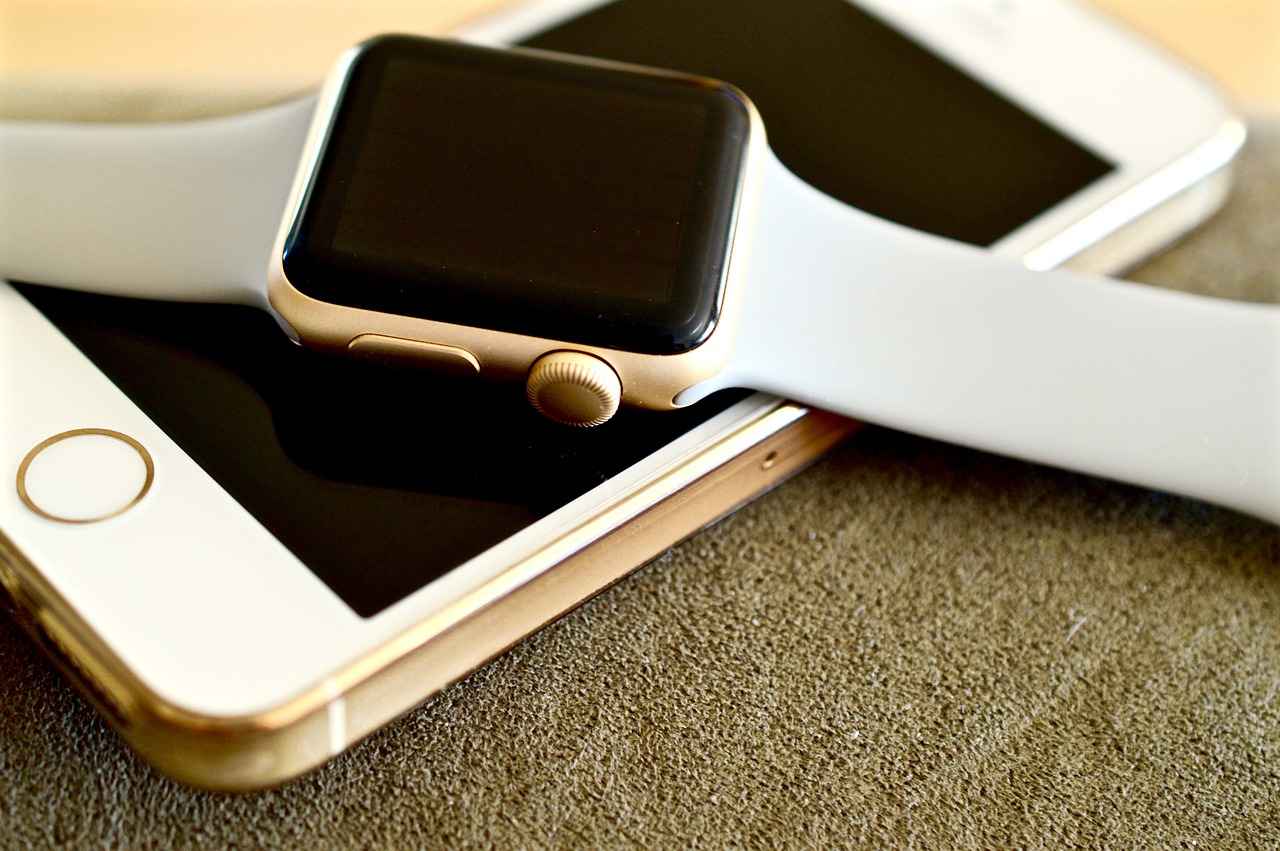
Comparing Smartwatch ECG Accuracy
When it comes to health monitoring, the accuracy of ECG readings from smartwatches is of paramount importance. Many users depend on these devices to track their heart health and manage potential health issues. Therefore, understanding how accurate these readings are can significantly influence the decision-making process for consumers.
Smartwatches equipped with ECG functionality offer users the ability to monitor their heart’s electrical activity conveniently. However, the accuracy of these readings can vary significantly between different brands and models. This variability can be attributed to factors such as the technology used, the quality of sensors, and the algorithms that process the data.
Recent studies have shown that while many smartwatches provide reasonably accurate ECG readings, they are not a substitute for professional medical equipment. For instance, research indicates that some models can achieve an accuracy rate of up to 95% in detecting atrial fibrillation, a common heart condition. However, it is crucial for users to understand that these devices are primarily designed for personal monitoring and not for diagnostic purposes.
Moreover, user experiences play a critical role in assessing the practical accuracy of smartwatch ECG features. Many users report discrepancies between their smartwatch readings and those obtained during clinical evaluations. This inconsistency can arise from improper usage, such as incorrect placement of the device on the wrist or movement during the reading.
To assist consumers in making informed choices, it is advisable to look for smartwatches that have undergone rigorous clinical testing and have received regulatory approvals. Additionally, reading user reviews can provide insights into real-world performance and reliability.
In summary, while smartwatch ECG readings can be a valuable tool for health monitoring, users should remain aware of their limitations and ensure they complement, rather than replace, professional medical advice.
Clinical Studies on Smartwatch ECG Accuracy
In recent years, the emergence of smartwatches equipped with Electrocardiogram (ECG) functionality has revolutionized personal health monitoring. A growing body of clinical studies has scrutinized the accuracy of ECG readings from these devices, revealing significant findings that underscore their potential in detecting heart conditions early.
Research conducted by reputable institutions has consistently shown that smartwatch ECGs can provide readings comparable to traditional ECG machines. For instance, a study published in the Journal of Medical Internet Research found that the accuracy of smartwatch ECG readings was within an acceptable range when compared to clinical standards. This level of reliability is crucial for users who rely on these devices for ongoing heart health monitoring.
Moreover, the ability of smartwatches to detect atrial fibrillation (AFib) is particularly noteworthy. AFib is a common arrhythmia that can lead to serious complications if left undiagnosed. Several studies have highlighted that smartwatches can effectively identify AFib episodes, enabling users to seek timely medical intervention. For example, a landmark study involving thousands of participants demonstrated that smartwatch ECGs could detect AFib with an impressive sensitivity and specificity rate, leading to early diagnosis and treatment.
Additionally, the convenience of having ECG monitoring on a wearable device allows users to perform tests at their discretion, promoting proactive health management. This is especially beneficial for individuals with a family history of heart disease or those experiencing symptoms such as palpitations or shortness of breath.
In summary, the findings from various clinical studies affirm the reliability and accuracy of smartwatch ECG readings. As technology advances, these devices are poised to play an increasingly vital role in personal health management, empowering users with the tools they need for early detection and intervention of heart conditions.
User Experiences and Testimonials
User experiences and testimonials are crucial when it comes to assessing the practicality and effectiveness of ECG features in smartwatches. These insights not only highlight the functionality of the devices but also provide a glimpse into how they perform in real-world scenarios. Many users have shared their stories about how ECG monitoring has impacted their health management.
- Real-Time Health Monitoring: Users often express appreciation for the ability to monitor their heart health in real time. For instance, a user might recount how they detected irregular heartbeats during daily activities, prompting them to seek medical advice.
- Ease of Use: Many testimonials emphasize the user-friendly interfaces of smartwatches like the Apple Watch Series 8 and Samsung Galaxy Watch 5. Users appreciate how simple it is to take an ECG reading, often taking only a matter of seconds.
- Peace of Mind: For individuals with pre-existing heart conditions, the reassurance that comes from having ECG capabilities at their fingertips is invaluable. Users frequently mention how this feature allows them to feel more in control of their health.
- Integration with Health Apps: The ability to sync ECG data with health apps is another recurring theme in user reviews. This integration helps users track their heart health over time and share important data with healthcare professionals.
Furthermore, many users highlight the importance of having reliable ECG readings. Reviews often discuss how smartwatch ECG readings compare favorably with traditional ECG machines, providing confidence in their accuracy. This reliability is a significant factor for potential buyers who prioritize health monitoring.
In summary, user reviews and testimonials serve as a vital resource for potential buyers. They provide a comprehensive understanding of how ECG features function in everyday life, helping individuals make informed decisions about which smartwatch best meets their health monitoring needs.

Heart Rate Monitoring Features Explained
Heart rate monitoring technology in smartwatches has seen significant advancements, making it easier for users to keep track of their cardiovascular health. This section delves into the various heart rate monitoring technologies utilized in smartwatches, focusing on optical sensors and sophisticated algorithms that enhance measurement accuracy.
At the core of most smartwatches is the optical sensor technology, which employs light-based sensors to detect blood flow through the skin. These sensors use a method known as photoplethysmography (PPG), where light is emitted into the skin and the reflected light is measured. This process helps in determining the heart rate by analyzing changes in blood volume. However, the effectiveness of these sensors can be influenced by factors such as skin tone, movement, and even temperature.
To address the limitations of optical sensors, many smartwatches incorporate advanced algorithms that refine the accuracy of heart rate readings. These algorithms analyze the data collected by the sensors and apply machine learning techniques to filter out noise and improve the reliability of the readings. By doing so, they can provide users with more precise heart rate information, even during intense physical activities.
| Technology | Description | Benefits |
|---|---|---|
| Optical Sensors | Utilizes light to measure blood flow | Non-invasive, real-time monitoring |
| Advanced Algorithms | Processes sensor data for accuracy | Improved reliability during exercise |
Furthermore, many modern smartwatches offer continuous heart rate monitoring, allowing users to track their heart rate throughout the day. This feature is particularly beneficial for those looking to manage their fitness levels or monitor stress, as it provides a comprehensive overview of heart activity over time.
In conclusion, the combination of optical sensors and advanced algorithms in smartwatches has revolutionized heart rate monitoring, offering users valuable insights into their health. As technology continues to evolve, we can expect even greater accuracy and functionality in future smartwatch models.
Continuous vs. On-Demand Heart Rate Monitoring
When it comes to heart rate monitoring in smartwatches, users often encounter two primary methods: continuous and on-demand monitoring. Understanding the differences between these two approaches is essential for selecting a smartwatch that aligns with individual lifestyles and fitness goals.
Continuous heart rate monitoring provides real-time data throughout the day, tracking heart rate fluctuations during various activities, including workouts and rest periods. This feature is particularly beneficial for individuals who engage in regular physical activity, as it allows them to maintain optimal exercise intensity and monitor their heart’s response to different workouts. By analyzing trends over time, users can gain insights into their overall cardiovascular health and adjust their fitness routines accordingly.
On the other hand, on-demand heart rate monitoring allows users to check their heart rate at specific moments, typically by activating the feature through the smartwatch interface. This method is ideal for those who may not require constant monitoring but want the ability to assess their heart rate during critical moments, such as during high-stress situations or specific workouts. It offers flexibility and can help users become more aware of their heart health without the need for continuous data tracking.
When choosing between these two options, users should consider their personal lifestyle and fitness goals. For instance, athletes or fitness enthusiasts may benefit more from continuous monitoring to optimize their training, while casual users might find on-demand monitoring sufficient for occasional checks. Ultimately, understanding these differences can guide users in selecting a smartwatch that not only meets their health needs but also enhances their overall wellness journey.
In summary, the choice between continuous and on-demand heart rate monitoring hinges on individual preferences and fitness objectives. By evaluating these factors, users can make informed decisions that support their health and fitness aspirations.
Heart Rate Variability: What to Know
Heart Rate Variability (HRV) is a vital indicator of health, reflecting the body’s ability to adapt to stress and environmental changes. It measures the time interval between heartbeats, known as the R-R intervals. A higher HRV typically signifies better cardiovascular fitness and resilience to stress, while a lower HRV may indicate fatigue or increased stress levels.
Smartwatches equipped with HRV tracking capabilities offer users valuable insights into their overall well-being. By monitoring HRV, individuals can gain a deeper understanding of their stress levels and recovery status. This information can be particularly beneficial for athletes and fitness enthusiasts, as it helps optimize training regimens and recovery strategies.
Many modern smartwatches utilize advanced algorithms and sensors to calculate HRV accurately. These devices often provide users with real-time feedback, allowing them to make informed decisions about their health and fitness routines. For instance, users can identify patterns in their HRV data that correlate with their daily activities, sleep quality, and stress management techniques.
| Smartwatch Model | HRV Tracking Feature | Additional Insights |
|---|---|---|
| Apple Watch Series 8 | Yes | Integrates with the Health app for comprehensive health insights. |
| Samsung Galaxy Watch 5 | Yes | Offers stress management tools based on HRV data. |
| Garmin Forerunner 245 | Yes | Provides training status and recovery insights. |
Incorporating HRV tracking into your daily routine can lead to enhanced self-awareness and improved health outcomes. By regularly monitoring HRV, users can adjust their lifestyle choices, such as sleep patterns, exercise intensity, and stress management practices. This adaptive approach can significantly enhance one’s overall health and well-being.
Ultimately, understanding and utilizing heart rate variability through smartwatches can empower individuals to take charge of their health, leading to a more balanced and fulfilling life.
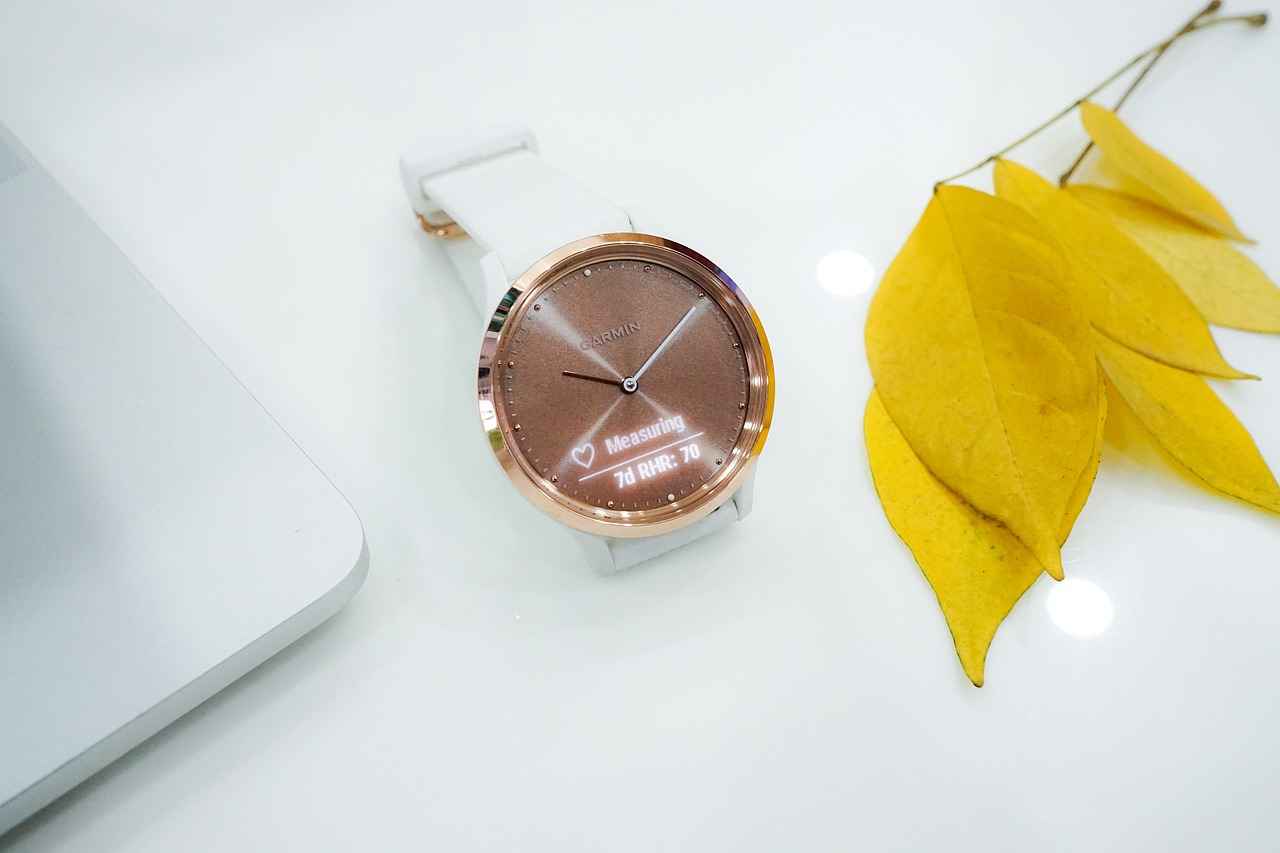
Choosing the Right Smartwatch for Your Needs
When it comes to selecting a smartwatch with ECG and heart rate monitoring capabilities, several key factors should be considered to ensure you choose a device that meets your specific needs. This guide will help you navigate through the essential aspects to look for.
- Compatibility: Before making a purchase, check if the smartwatch is compatible with your smartphone’s operating system. Most smartwatches work seamlessly with either iOS or Android, but some may have limited functionality depending on the platform.
- Design and Comfort: Since you will likely wear your smartwatch throughout the day, consider its design and comfort. Look for options that offer customizable bands and styles to suit your personal taste while ensuring it fits comfortably on your wrist.
- Battery Life: The battery life of a smartwatch can significantly impact its usability. Smartwatches with ECG and heart rate monitoring features might consume more power, so look for models that offer extended battery life to avoid frequent charging.
- Health Features: In addition to ECG and heart rate monitoring, consider what other health features are included. Features such as sleep tracking, blood oxygen monitoring, and stress management tools can provide a more comprehensive view of your health.
- Price and Value: Smartwatches range from budget-friendly to premium models. Assess the features offered at each price point and determine which smartwatch provides the best value for your specific health monitoring needs.
By carefully considering these factors, you can make an informed decision when choosing a smartwatch that not only meets your health tracking requirements but also fits seamlessly into your lifestyle.
Budget vs. Premium Smartwatches
When it comes to choosing a smartwatch, consumers often find themselves weighing the advantages and disadvantages between budget-friendly options and premium models. Both categories offer unique features and functionalities, but understanding the trade-offs is crucial for making an informed decision.
Budget smartwatches typically come at a lower price point, making them accessible to a wider audience. They often include essential features such as heart rate monitoring, fitness tracking, and notifications. However, these devices may lack advanced functionalities like ECG monitoring, built-in GPS, or superior battery life. Users looking for basic health tracking and notifications may find these options sufficient.
On the other hand, premium smartwatches, such as the Apple Watch Series 8 or Samsung Galaxy Watch 5, offer a wealth of advanced features. These devices often include precise ECG capabilities, comprehensive health metrics, and seamless integration with various apps. While the initial investment is higher, the enhanced performance and additional functionalities can justify the cost for those who prioritize health monitoring and fitness tracking.
One of the main trade-offs between budget and premium smartwatches is performance. Premium models generally provide faster processors and more accurate sensors, resulting in better user experiences. For instance, ECG readings from high-end devices are often more reliable, which can be critical for users with specific health concerns.
Moreover, design and build quality also differ significantly. Premium smartwatches often feature more durable materials, stylish designs, and customizable options, appealing to users who value aesthetics as well as functionality.
Ultimately, the choice between budget and premium smartwatches depends on individual needs and preferences. Users should consider what features are most important to them and how much they are willing to invest in their health and fitness journey.
Future Trends in Smartwatch Health Monitoring
As technology continues to advance, the realm of smartwatch health monitoring is evolving rapidly. In recent years, there has been a significant focus on enhancing ECG (electrocardiogram) and heart rate tracking capabilities. This article delves into the emerging trends and potential advancements that are shaping the future of health monitoring through smartwatches.
Integration of AI and Machine Learning
One of the most promising trends is the integration of artificial intelligence (AI) and machine learning algorithms in health monitoring. These technologies can analyze vast amounts of data collected from users to provide personalized health insights and predictive analytics. For instance, future smartwatches might not only monitor heart rate but also predict potential heart issues before they manifest, allowing for timely medical intervention.
Enhanced ECG Accuracy
Future developments are likely to focus on improving the accuracy of ECG readings. With advancements in sensor technology, smartwatches will be able to provide more precise readings, reducing the chances of false positives. This will enhance user confidence in relying on their devices for critical health monitoring.
Wearable Health Sensors
The miniaturization of health sensors will also play a crucial role. Future smartwatches may incorporate advanced sensors that can monitor a wider range of health metrics, such as blood glucose levels and blood pressure, alongside heart rate and ECG. This multi-faceted approach will empower users to manage their health more effectively.
Real-time Health Alerts
With continuous monitoring capabilities, smartwatches will increasingly offer real-time health alerts. Users will receive notifications about abnormal heart rates or irregular ECG patterns, prompting them to seek medical advice instantly. This feature will be particularly beneficial for individuals with pre-existing heart conditions.
Seamless Integration with Health Ecosystems
Future smartwatches are expected to integrate seamlessly with broader health ecosystems, including telehealth services and electronic health records (EHRs). This will facilitate better communication between users and healthcare providers, ensuring that medical professionals have access to accurate and up-to-date health data.
In conclusion, the future of smartwatch health monitoring is bright, with advancements in technology promising to revolutionize how we track and manage our health. As these innovations unfold, users can look forward to more accurate, comprehensive, and user-friendly health monitoring solutions.
Frequently Asked Questions
- What is ECG monitoring in smartwatches?
ECG monitoring in smartwatches tracks the electrical activity of your heart, helping you understand your heart health and detect potential issues like arrhythmias. It’s like having a mini heart doctor on your wrist!
- How accurate are smartwatch ECG readings?
Smartwatch ECG readings can be quite accurate, especially those from reputable brands. Clinical studies have shown they can effectively detect heart conditions, but they shouldn’t replace professional medical advice.
- What are the benefits of heart rate monitoring?
Heart rate monitoring helps you stay on top of your fitness game! It allows you to track exercise intensity, manage stress, and maintain optimal heart health, making it easier to reach your wellness goals.
- Can I use ECG features without a smartphone?
Most smartwatches require a smartphone for full functionality, but some allow you to perform ECG tests directly on the watch. Just check the specific model’s capabilities!
- What should I consider when choosing a smartwatch?
Think about compatibility with your phone, design, battery life, and what health features you really need. It’s like picking the right tool for your fitness toolbox!

